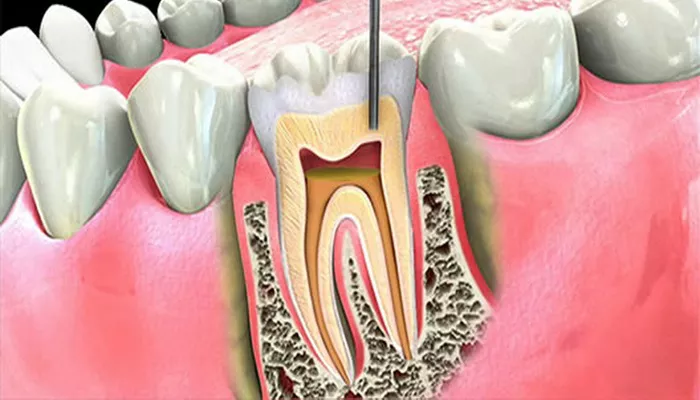Periodontal disease, commonly known as gum disease, is a serious oral health condition that affects millions of people worldwide. It is a progressive condition that, if left untreated, can lead to severe complications, including tooth loss. Many people diagnosed with periodontal disease wonder whether they will eventually lose their teeth. The good news is that with proper treatment and oral care, tooth loss can often be prevented.
In this article, we will explore how periodontal disease develops, its impact on your teeth, and what you can do to protect your oral health.
What Is Periodontal Disease?
Periodontal disease is an inflammatory condition that affects the gums and supporting structures of the teeth. It occurs due to bacterial plaque buildup along the gumline, leading to infection and inflammation.
Stages of Periodontal Disease
Periodontal disease progresses through several stages, each increasing the risk of tooth loss:
Gingivitis (Early Stage)
The mildest form of gum disease, characterized by red, swollen gums that may bleed when brushing or flossing.
At this stage, the damage is reversible with proper oral care and professional cleaning.
Mild to Moderate Periodontitis
Plaque and bacteria spread below the gumline, causing the gums to pull away from the teeth.
Pockets form between the teeth and gums, leading to bone loss around the teeth.
Advanced Periodontitis
Severe gum recession and bone loss occur, weakening the support around teeth.
Teeth may become loose and eventually fall out if treatment is not sought.
Can Periodontal Disease Cause Tooth Loss?
Yes, periodontal disease is one of the leading causes of tooth loss in adults. As the infection spreads, it damages the bone and connective tissues that support teeth. Without treatment, teeth lose their stability and may either fall out or require extraction.
How Periodontal Disease Leads to Tooth Loss
Gum Recession
As bacteria destroy gum tissue, the gums recede, exposing the tooth roots. This makes teeth more susceptible to decay and instability.
Loss of Bone Structure
Periodontal disease erodes the jawbone, weakening the foundation that holds teeth in place.
Tooth Mobility
As the supporting structures deteriorate, teeth become loose and may shift out of position.
Infection and Abscesses
Severe periodontal disease can lead to painful infections that damage surrounding tissue and bone.
Tooth Loss
When the bone and gums can no longer support a tooth, it may fall out naturally or require removal.
How to Prevent Tooth Loss from Periodontal Disease
While periodontal disease is a serious condition, tooth loss is not inevitable. With proper oral care and treatment, you can manage the disease and keep your teeth healthy.
1. Practice Good Oral Hygiene
Maintaining a strong oral hygiene routine is essential for preventing and controlling periodontal disease:
Brush Twice a Day with fluoride toothpaste and a soft-bristled toothbrush.
Floss Daily to remove plaque from between teeth and under the gumline.
Use an Antimicrobial Mouthwash to kill bacteria and reduce inflammation.
2. Visit Your Dentist Regularly
Routine dental checkups and cleanings are crucial for detecting and managing periodontal disease:
Professional Cleanings: Dentists can remove plaque and tartar that brushing and flossing cannot.
Early Detection: Regular exams help identify gum disease in its early stages before it progresses.
3. Undergo Periodontal Treatment
If you have periodontitis, your dentist or periodontist may recommend specialized treatments to stop its progression:
Scaling and Root Planing: A deep-cleaning procedure that removes plaque and tartar below the gumline.
Antibiotic Therapy: Medications may be used to control infection and inflammation.
Surgical Treatments: In severe cases, procedures like gum grafting or bone grafting can help restore lost tissue.
4. Maintain a Healthy Diet
A well-balanced diet supports gum health and prevents further damage:
Eat Calcium-Rich Foods like dairy, leafy greens, and almonds to strengthen bones.
Increase Vitamin C Intake to promote gum healing and reduce inflammation.
Limit Sugary and Processed Foods that contribute to plaque buildup.
5. Quit Smoking and Limit Alcohol Consumption
Smoking and excessive alcohol consumption are major risk factors for periodontal disease:
Smoking weakens the immune system, making it harder for gums to heal.
Alcohol dries out the mouth, reducing saliva production and increasing bacterial growth.
Can Lost Teeth Be Replaced After Periodontal Disease?
If periodontal disease has led to tooth loss, several options are available to restore your smile:
Dental Implants
A long-term solution that replaces missing teeth with artificial roots and crowns.
Requires sufficient bone structure for placement.
Bridges
A dental bridge fills the gap left by missing teeth, restoring function and aesthetics.
Dentures
Partial or full dentures provide an affordable replacement option for multiple lost teeth.
Before choosing a replacement option, your dentist will assess your oral health and determine the best treatment plan.
Is Periodontal Disease Curable?
While periodontal disease cannot be completely cured in its advanced stages, it can be managed effectively with treatment and lifestyle changes. The earlier you address the condition, the better your chances of preventing further damage and tooth loss.
Conclusion
Periodontal disease is a leading cause of tooth loss, but it does not have to be inevitable. With good oral hygiene, regular dental visits, and professional treatment, you can slow the progression of the disease and protect your teeth. If you have symptoms of gum disease, such as bleeding gums, bad breath, or loose teeth, seek professional care immediately. By taking proactive steps, you can preserve your smile and maintain healthy teeth for years to come.

